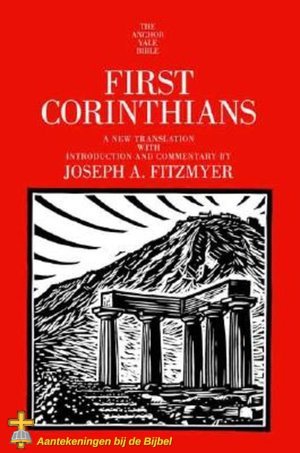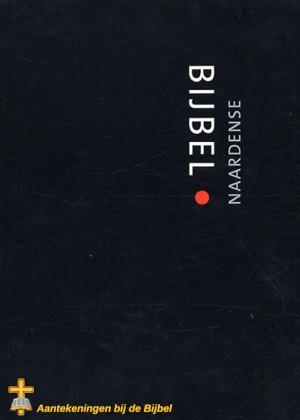
Aantekeningen bij de Bijbel
Vragen, overdenkingen en achtergronden over de Bijbel,
welke resulteren in allerlei aantekeningen.
| SV | De spijzen zijn voor de buik, en de buik [is] voor de spijzen; maar God zal beide dezen en die te niet doen. Doch het lichaam is niet voor de hoererij, maar voor den Heere en de Heere voor het lichaam. |
| Steph | τα βρωματα τη κοιλια και η κοιλια τοις βρωμασιν ο δε θεος και ταυτην και ταυτα καταργησει το δε σωμα ου τη πορνεια αλλα τω κυριω και ο κυριος τω σωματι
|
| Trans. | ta brōmata tē koilia kai ē koilia tois brōmasin o de theos kai tautēn kai tauta katargēsei to de sōma ou tē porneia alla tō kyriō kai o kyrios tō sōmati |
Algemeen
Zie ook: Prostitutie
Aantekeningen
De spijzen zijn voor de buik, en de buik [is] voor de spijzen; maar God zal beide dezen en die te niet doen. Doch het lichaam is niet voor de hoererij, maar voor den Heere en de Heere voor het lichaam.
- Irenaeus AH 5.6.2 - Whence also he says, that this handiwork is the temple of God, thus declaring: Do you not know that you are the temple of God, and that the Spirit of God dwells in you? If any man, therefore, will defile the temple of God, him will God destroy: for the temple of God is holy, which [temple] you are. 1 Corinthians 3:16 Here he manifestly declares the body to be thetemple in which the Spirit dwells. As also the Lord speaks in reference to Himself, Destroy this temple, and in three days I will raise it up. He spoke this, however, it is said, of the templeof His body. John 2:19-21 And not only does he (the apostle) acknowledge our bodies to be a temple, but even the temple of Christ, saying thus to the Corinthians, Do you not know that your bodies are members of Christ? Shall I then take the members of Christ, and make them the members of an harlot? 1 Corinthians 3:17 He speaks these things, not in reference to some other spiritual man; for a being of such a nature could have nothing to do with an harlot: but he declares our body, that is, the flesh which continues in sanctity and purity, to bethe members of Christ; but that when it becomes one with an harlot, it becomes the members of an harlot. And for this reason he said, If any man defile the temple of God, him will Goddestroy. How then is it not the utmost blasphemy to allege, that the temple of God, in which the Spirit of the Father dwells, and the members of Christ, do not partake of salvation, but are reduced to perdition? Also, that our bodies are raised not from their own substance, but by the power of God, he says to the Corinthians, Now the body is not for fornication, but for the Lord, and the Lord for the body. But God has both raised up the Lord, and shall raise us up by His own power.
- Clement Instructor 1.6 - But again in summer, the body, having its pores more open, affords greater facility for diaphoretic action in the case of the food, and the milk is least abundant, since neither is the blood full, nor is the whole nutriment retained. If, then, the digestion of the food results in the production of blood, and the blood becomes milk, then blood is a preparation for milk, as blood is for a human being, and the grape for the vine. With milk, then, the Lord's nutriment, we are nursed directly we are born; and as soon as we are regenerated, we are honoured by receiving the good news of the hope of rest, even the Jerusalem above, in which it is written that milk and honey fall in showers, receiving through what is material the pledge of the sacred food. "For meats are done away with," as the apostle himself says; but this nourishment on milk leads to the heavens, rearing up citizens of heaven, and members of the angelic choirs. And since the Word is the gushing fountain of life, and has been called a river of olive oil, Paul, using appropriate figurative language, and calling Him milk, adds: "I have given you to drink;" for we drink in the word, the nutriment of the truth. In truth, also liquid food is called drink; and the same thing may somehow be both meat and drink, according to the different aspects in which it is considered, just as cheese is the solidification of milk or milk solidified; for I am not concerned here to make a nice selection of an expression, only to say that one substance supplies both articles of food. Besides, for children at the breast, milk alone suffices; it serves both for meat and drink. "I," says the Lord, "have meat to eat that ye know not of. My meat is to do the will of Him that sent Me." You see another kind of food which, similarly with milk, represents figuratively the will of God. Besides, also, the completion of His own passion He called catachrestically "a cup," when He alone had to drink and drain it. Thus to Christ the fulfilling of His Father's will was food; and to us infants, who drink the milk of the word of the heavens, Christ Himself is food. Hence seeking is called sucking; for to those babes that seek the Word, the Father's breasts of love supply milk.
- Clement Instructor 2.1 - “Desire not,” says the Scripture, “rich men’s dainties;” for they belong to a false and base life. They partake of luxurious dishes, which a little after go to the dunghill. But we who seek the heavenly bread must rule the belly, which is beneath heaven, and much more the things which are agreeable to it, which “God shall destroy,” says the apostle, justly execrating gluttonous desires. For “meats are for the belly,” for on them depends this truly carnal and destructive life; whence some, speaking with unbridled tongue, dare to apply the name agape, to pitiful suppers, redolent of savour and sauces. Dishonouring the good and saving work of the Word, the consecrated agape, with pots and pouring of sauce; and by drink and delicacies and smoke desecrating that name, they are deceived in their idea, having expected that the promise of God might be bought with suppers. Gatherings for the sake of mirth, and such entertainments as are called by ourselves, we name rightly suppers, dinners, and banquets, after the example of the Lord. But such entertainments the Lord has not called agapæ. He says accordingly somewhere, “When thou art called to a wedding, recline not on the highest couch; but when thou art called, fall into the lowest place;” and elsewhere, “When thou makest a dinner or a supper;” and again, “But when thou makest an entertainment, call the poor,” for whose sake chiefly a supper ought to be made. And further, “A certain man made a great supper, and called many.” But I perceive whence the specious appellation of suppers flowed: “from the gullets and furious love for suppers”—according to the comic poet. For, in truth, “to many, many things are on account of the supper.”
- Clement Stromata 2 5 § 4
- Clement Stromata 3.6 - So it is not just our spirit which ought to be consecrated. It is our character, our life, our body. What is the sense of the Apostle Paul’s words that the wife is consecrated by her husband, and the husband by his wife? (2) What was it that the Lord said to those who questioned him about divorce, asking whether it was permissible to get rid of one’s wife on the authority of Moses? He said, "Moses wrote this with an eye to your hardheartedness. But have you not read what God said to the first-formed male: ‘You two shall come into one single flesh’? So, anyone who disposes of his wife except by reason of sexual immorality is making an adulteress of her." (3) But "after the resurrection," he says, "they do not marry and are not given in marriage." Yes, and this is what is said about the stomach and food: "Food is for the stomach and the stomach for food, and God will put an end to both." He is rebuking those who think to live like boars or goats, to stop them eating and copulating without any sense of respect.
- Clement Stromata 3.18 - down to "The body is not for sexual promiscuity but for the Lord, and the Lord for the body."
- Clement Stromata 7 87 § 2
- Tertullian Against Marcion 5 7 § 4 - Why does (the apostle) clothe us and Christ with symbols of the Creator’s solemn rites, unless they had relation to ourselves? When, again, he warns us against fornication, he reveals the resurrection of the flesh. “The body,” says he, “is not for fornication, but for the Lord; and the Lord for the body,” just as the temple is for God, and God for the temple. A temple will therefore pass away with its god, and its god with the temple. You see, then, how that “He who raised up the Lord will also raise us up.” In the body will He raise us, because the body is for the Lord, and the Lord for the body. And suitably does he add the question: “Know ye not that your bodies are the members of Christ?” What has the heretic to say? That these members of Christ will not rise again, for they are no longer our own? “For,” he says, “ye are bought with a price.” 1 Cor. vi. 20. A price! surely none at all was paid, since Christ was a phantom, nor had He any corporeal substance which He could pay for our bodies! But, in truth, Christ had wherewithal to redeem us; and since He has redeemed, at a great price, these bodies of ours, against which fornication must not be committed (because they are now members of Christ, and not our own), surely He will secure, on His own account, the safety of those whom He made His own at so much cost! Now, how shall we glorify, how shall we exalt, God in our body, which is doomed to perish? We must now encounter the subject of marriage, which Marcion, more continent than the apostle, prohibits. For the apostle, although preferring the grace of continence, yet permits the contraction of marriage and the enjoyment of it, and advises the continuance therein rather than the dissolution thereof.
- Tertullian Modesty 16 § 6
- Epiphanius Panarion 47 2 § 7
- Een (mogelijk) citaat uit Sirach 36:18.
Vertaalnotities
 Zie hier voor een verklaring van de gebruikte coderingen.
Zie hier voor een verklaring van de gebruikte coderingen.
Zie hier over het gebruik van de interlineair.
De spijzen zijn voor de buik, en de buik [is] voor de spijzen; maar God zal beide dezen en die te niet doen. Doch het lichaam is niet voor de hoererij, maar voor den Heere en de Heere voor het lichaam.
____
- Lacune in minuscule 122, δ 258 (C.R. Gregory, Textkritik des Neuen Testamentes, p. 153): Hand. 1:1-14; 21:15-22:28; Rom. 1:1-7:13; 1 Cor. 2:7-14:23; 1 Joh. 4:20-Judas einde;
Koop nu
Commentaar
 Zie de huisregels welk commentaar wordt opgenomen!
Zie de huisregels welk commentaar wordt opgenomen!

![]() Zie hier voor een verklaring van de gebruikte coderingen.
Zie hier voor een verklaring van de gebruikte coderingen.




![]() Zie de huisregels welk commentaar wordt opgenomen!
Zie de huisregels welk commentaar wordt opgenomen!